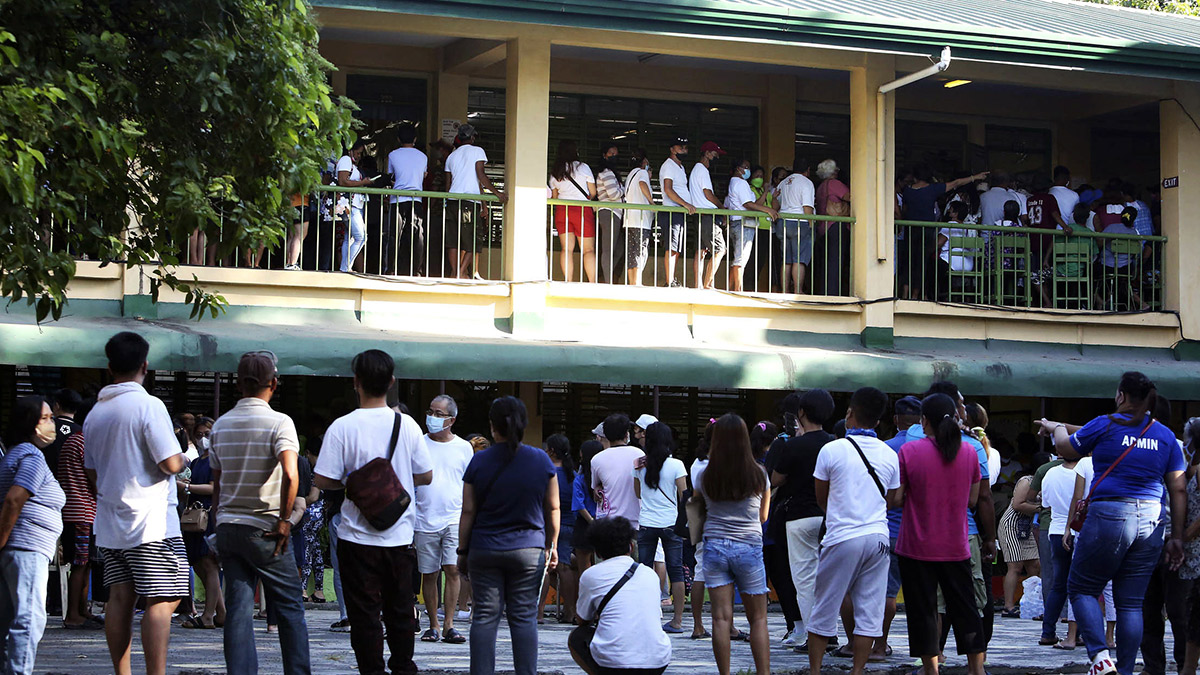
WINNING BID The joint venture of iOne Resources Inc. and Ardent Networks Inc. has won the contract to provide Secure Electronic Transmission Services for next year’s midterm elections. This will allow poll results to be transmitted simultaneously to all canvassing boards and authorized recipients without passing through a server. INQUIRER FILE PHOTO
MANILA, Philippines — The Commission on Elections (Comelec) has issued a notice of award to the joint venture (JV) of iOne Resources Inc. and Ardent Networks Inc., which submitted the lowest bid of P1.42 billion to provide Secure Electronic Transmission Services (SETS) for next year’s midterm elections.
In an en banc resolution dated April 5, the Comelec approved the March 25 recommendation of its Special Bids and Awards Committee-Automated Election System (SBAC-AES) to award the deal to iOne-Ardent JV.
The SETS contract, which originally had a budget of P1.638 billion, tasks the winning bidder to provide secure electronic transmission services for the 2025 midterm elections using telecommunications networks. Also included in the deal are provisions for data centers and connectivity requirements for the AES.
READ: Comelec receives 1.9 million new voter registrations out of 3 million target
Aside from iOne-Ardent, another company, Ebizolution, Inc.-Secur Links Network and Technologies Inc.-Systems Information and Solutions Corp. Joint Venture, participated in the competitive public bidding held on Feb. 29.
On March 19, the SBAC-AES’s technical working group declared that Ione-Ardent passed the post-qualification evaluation.
Comelec spokesperson John Rex Laudiangco, SBAC-AES vice chair, earlier said that through SETS, the election results would be transmitted simultaneously—without passing through a server—to all canvassing boards and authorized recipients such as the dominant majority and minority parties, citizens’ arm and media partners.
Transparency assurance
The voting results recorded by the automated counting machines could also be checked and verified if these were the same as the ones that were transmitted, thus ensuring greater transparency and accountability, he added.
In November last year, Comelec banned the previous provider for the 2022 elections, Smartmatic Philippines Inc., from participating in all poll-related public bidding.
READ: Smartmatic PH banned from ‘all Comelec procurement’
It cited the firm’s involvement in the bribery charge filed by United States authorities against former Comelec Chair Andres Bautista. Smartmatic, however, denied the allegation.
The move was considered a big blow to Smartmatic, which was involved in six Philippine elections, starting with the country’s first automated polls in the Autonomous Region in Muslim Mindanao in 2008, the national elections in 2010, 2016 and 2022, as well as the midterm elections in 2013 and 2019.
1.9-M applications
Comelec Chair George Erwin Garcia said in a Viber message to reporters that as of Monday, the poll body had received more than 1.9 million voter registration applications, nearly two-thirds of its target of three million new voters for the 2025 elections.
The applications were filed in local Comelec offices, satellite registration centers and “Register Anywhere Program” (RAP) stations nationwide.
The five regions with the highest number of applicants were Calabarzon (Cavite, Laguna, Batangas, Rizal and Quezon provinces) with 350,923; Metro Manila, 284,921; Central Luzon, 217,151; Central Visayas, 138,867; and Davao, 212,024.
The registration period started on Feb. 12 and would end on Sept. 30.
The Comelec has opened RAP stations in malls, government offices and big companies to register potential voters unable to go home to their native towns in the provinces and those wishing to transfer their voting precincts or reactivate their voting status.